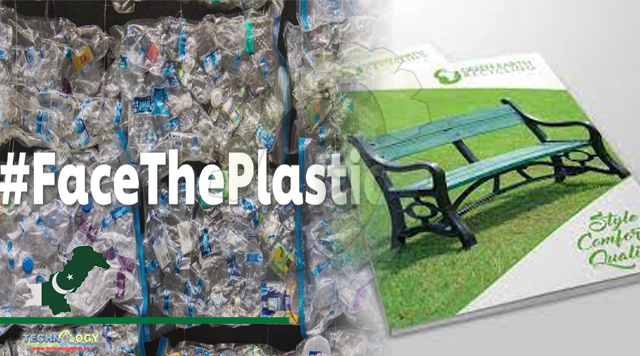Unilever Pakistan and Green Earth Recycling Pakistan have announced their efforts to collect and repurpose plastic waste into sustainable furniture.

Green Earth Recycling’s business model is based on converting plastic waste into useful “recycled plastic furniture” giving the plastic a second life, through a successful combination of material and technology. The company’s sustainably made furniture is resistant to natural damage and helps save trees while reduce solid plastic waste.
This partnership with Green Earth Recycling paves the next step of the company’s efforts to collect more plastic than it produces. Unilever Pakistan has also recently announced projects for a model city in Rahim Yar Khan, as well as brand led initiatives on sustainable plastic reuse.
These collaborations are part of Unilever Pakistan’s larger vision on environment action in line with its contribution to the global Plastics commitments set by Unilever to cut down its use of virgin plastic, use reusable and recyclable plastic packaging and especially, collect and process more plastic than it sells.
With Green Earth Recycling, Unilever Pakistan will work to recover around 2,000 tonnes of plastic waste in 2021 and re-introduce it into the circular economy.
The collected plastic is being recycled to create benches, desks, play areas and other outdoor furniture that can be used in parks and schools for the benefit of citizens. Through the partnership and the project, Unilever Pakistan is investing in models that not only help in creating a circular economy, but also drive economic empowerment and livelihood opportunities for people.
Amir Paracha, Chairman and CEO, Unilever Pakistan expressed his ambition with the partnership, “We are fully committed towards stepping up our contribution in the circular economy through bold, consistent and rigorous action against our plastics ambitions to collect more plastic than we produce and make our packaging material sustainable.
We believe that with this partnership with Green Earth Recycling, we are establishing a value chain where plastic waste can be collected, reused and built into environment and user-friendly solutions for citizens.”
Mr. Babar Aziz Bhatti, Director at Green Earth Recycling, also shared his views on the partnership, We are working on creating innovative sustainable materials that reduce the negative impact of plastics on the environment and drive down dependence on natural resources such as wood.
Our efforts with Unilever Pakistan will help us scale the impact of our business model and help us reach a wider audience, as real action across the country can only be driven through a focused effort with a collaborative approach amongst the public, private and social sectors.
Unilever Pakistan and Green Earth Recycling have signed off on a pilot to recover 2,000 tonnes, with escalated targets over the continued course of the partnership. The recycled furniture will be used in public spaces and schools for the benefit of the people of Pakistan.
Three people died of the dengue virus in Punjab, the provincial health department confirmed Tuesday. The dengue virus deaths were reported from Gujranwala, Faisalabad and Vehari, the Punjab health department said.
One of the deceased, a 21-year-old woman from Gujranwala, was a resident of Europe. The number of dengue patients in Punjab has now risen to 49, the health department said, adding that the highest number of dengue patients in the province has been reported from Bahawalpur.
There are 17 dengue patients in Bahawalpur, nine in Lahore and six in Kasur. Last week, the Punjab health department recorded 44 dengue cases, prompting the authorities to start taking emergency measures. In a bid to control the disease, the health department had directed authorities to make intensive-care units in hospitals operational and hire 10,929 health workers on a contractual basis.
Originally published at Daily times